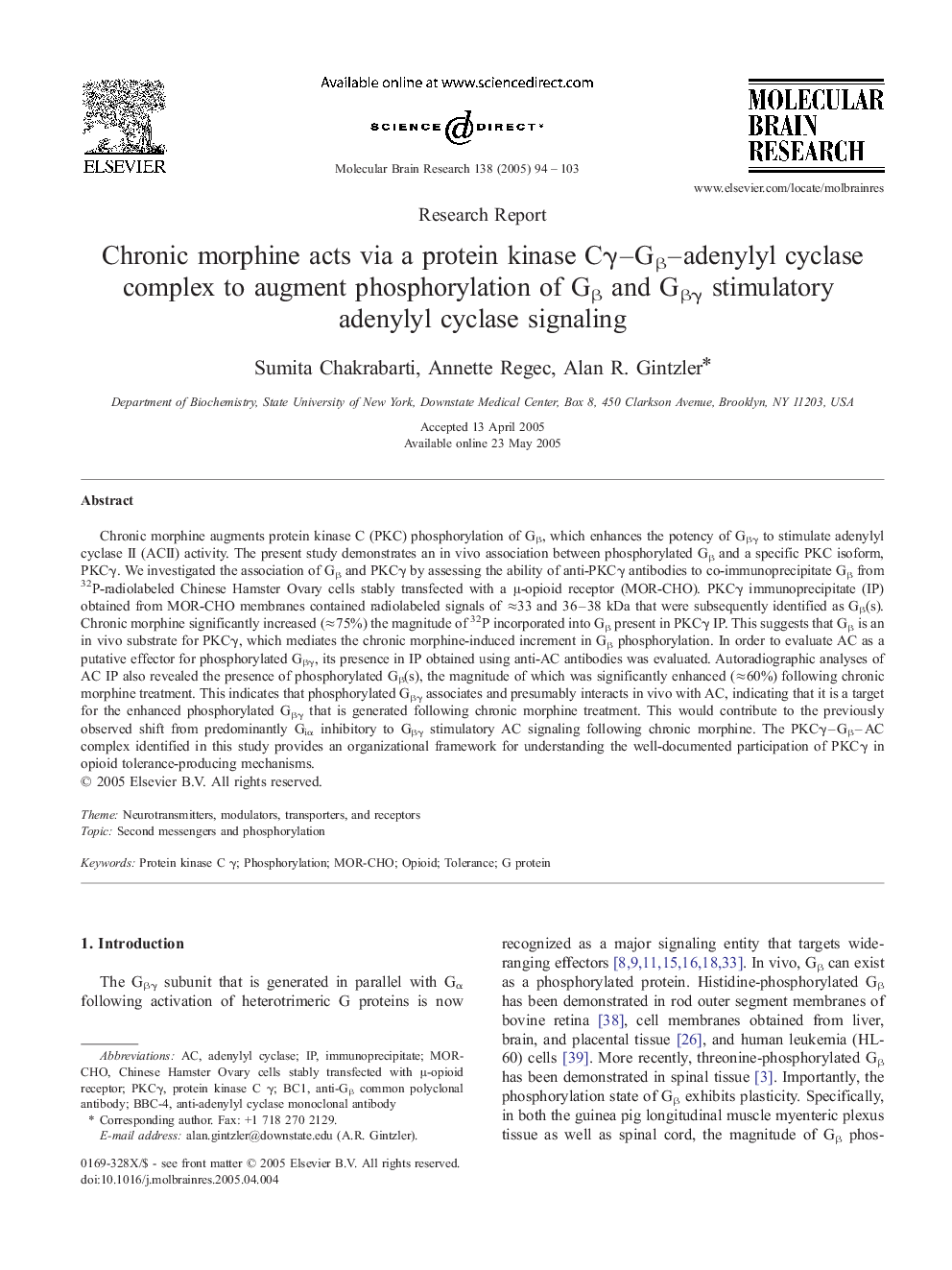| Article ID | Journal | Published Year | Pages | File Type |
|---|---|---|---|---|
| 9410633 | Molecular Brain Research | 2005 | 10 Pages |
Abstract
Chronic morphine augments protein kinase C (PKC) phosphorylation of Gβ, which enhances the potency of Gβγ to stimulate adenylyl cyclase II (ACII) activity. The present study demonstrates an in vivo association between phosphorylated Gβ and a specific PKC isoform, PKCγ. We investigated the association of Gβ and PKCγ by assessing the ability of anti-PKCγ antibodies to co-immunoprecipitate Gβ from 32P-radiolabeled Chinese Hamster Ovary cells stably transfected with a μ-opioid receptor (MOR-CHO). PKCγ immunoprecipitate (IP) obtained from MOR-CHO membranes contained radiolabeled signals of â33 and 36-38 kDa that were subsequently identified as Gβ(s). Chronic morphine significantly increased (â75%) the magnitude of 32P incorporated into Gβ present in PKCγ IP. This suggests that Gβ is an in vivo substrate for PKCγ, which mediates the chronic morphine-induced increment in Gβ phosphorylation. In order to evaluate AC as a putative effector for phosphorylated Gβγ, its presence in IP obtained using anti-AC antibodies was evaluated. Autoradiographic analyses of AC IP also revealed the presence of phosphorylated Gβ(s), the magnitude of which was significantly enhanced (â60%) following chronic morphine treatment. This indicates that phosphorylated Gβγ associates and presumably interacts in vivo with AC, indicating that it is a target for the enhanced phosphorylated Gβγ that is generated following chronic morphine treatment. This would contribute to the previously observed shift from predominantly Giα inhibitory to Gβγ stimulatory AC signaling following chronic morphine. The PKCγ-Gβ-AC complex identified in this study provides an organizational framework for understanding the well-documented participation of PKCγ in opioid tolerance-producing mechanisms.
Keywords
Related Topics
Life Sciences
Neuroscience
Cellular and Molecular Neuroscience
Authors
Sumita Chakrabarti, Annette Regec, Alan R. Gintzler,
